Thomas Wedenig
TU Graz
Exact Soft Analytical Side-Channel Attacks using Tractable Circuits
Jan 23, 2025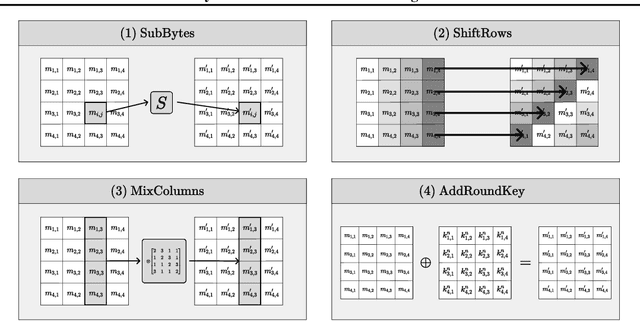
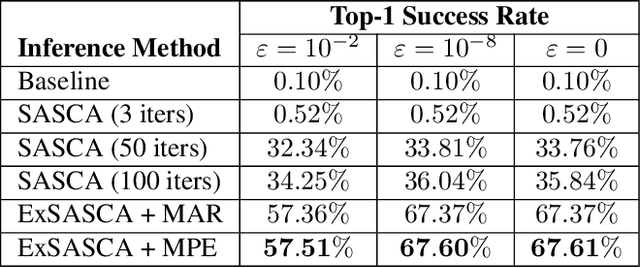
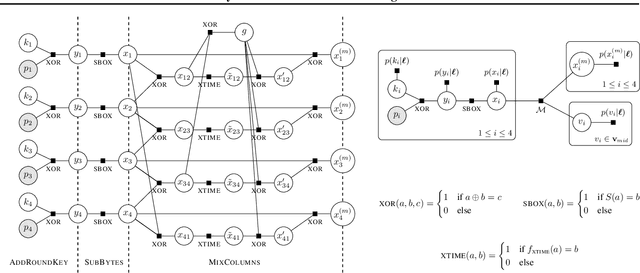
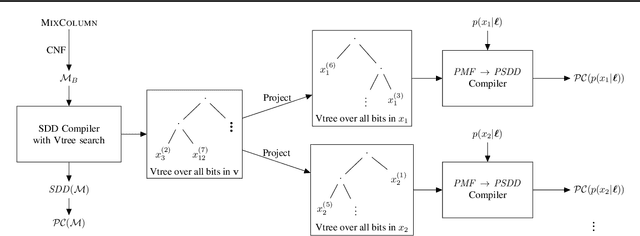
Abstract:Detecting weaknesses in cryptographic algorithms is of utmost importance for designing secure information systems. The state-of-the-art soft analytical side-channel attack (SASCA) uses physical leakage information to make probabilistic predictions about intermediate computations and combines these "guesses" with the known algorithmic logic to compute the posterior distribution over the key. This attack is commonly performed via loopy belief propagation, which, however, lacks guarantees in terms of convergence and inference quality. In this paper, we develop a fast and exact inference method for SASCA, denoted as ExSASCA, by leveraging knowledge compilation and tractable probabilistic circuits. When attacking the Advanced Encryption Standard (AES), the most widely used encryption algorithm to date, ExSASCA outperforms SASCA by more than 31% top-1 success rate absolute. By leveraging sparse belief messages, this performance is achieved with little more computational cost than SASCA, and about 3 orders of magnitude less than exact inference via exhaustive enumeration. Even with dense belief messages, ExSASCA still uses 6 times less computations than exhaustive inference.
Forecasting Electric Vehicle Charging Station Occupancy: Smarter Mobility Data Challenge
Jun 09, 2023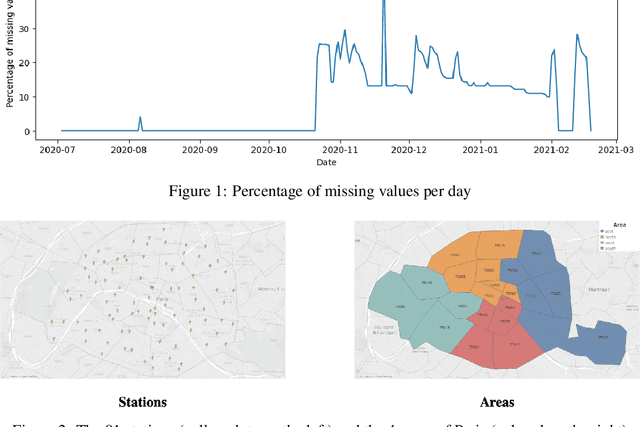


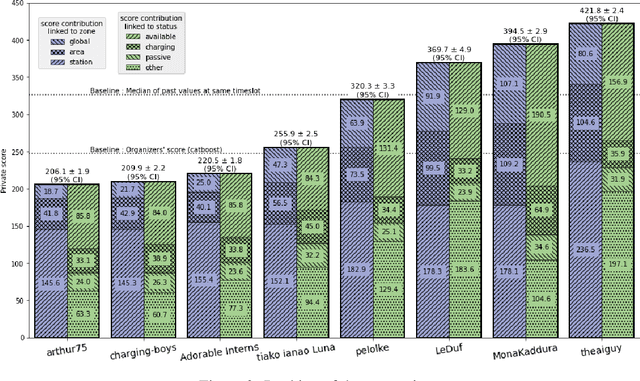
Abstract:The transport sector is a major contributor to greenhouse gas emissions in Europe. Shifting to electric vehicles (EVs) powered by a low-carbon energy mix would reduce carbon emissions. However, to support the development of electric mobility, a better understanding of EV charging behaviours and more accurate forecasting models are needed. To fill that gap, the Smarter Mobility Data Challenge has focused on the development of forecasting models to predict EV charging station occupancy. This challenge involved analysing a dataset of 91 charging stations across four geographical areas over seven months in 2020-2021. The forecasts were evaluated at three levels of aggregation (individual stations, areas and global) to capture the inherent hierarchical structure of the data. The results highlight the potential of hierarchical forecasting approaches to accurately predict EV charging station occupancy, providing valuable insights for energy providers and EV users alike. This open dataset addresses many real-world challenges associated with time series, such as missing values, non-stationarity and spatio-temporal correlations. Access to the dataset, code and benchmarks are available at https://gitlab.com/smarter-mobility-data-challenge/tutorials to foster future research.
 Add to Chrome
Add to Chrome Add to Firefox
Add to Firefox Add to Edge
Add to Edge